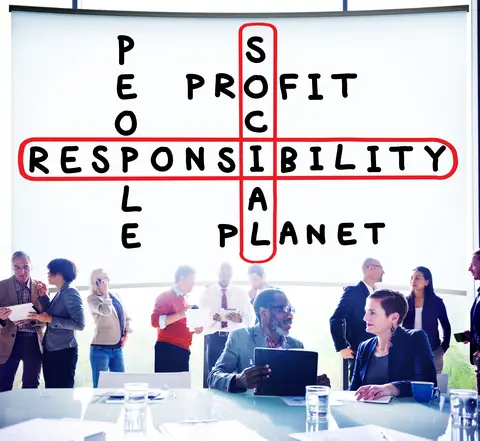What are you doing for others and why does it matter? The question of social responsibility has always been a concern to small businesses that are integral to their communities. With the growing influence of millennials, the concern is even greater. 
Two years ago, Brookings released some statistics we can’t ignore:
- By 2020, one in three adults in the U.S. will be millennials
- By 2025, 75% of the workforce will be millennials
- 89% of millennials said they had a strong likelihood that they would buy from companies supporting solutions to specific social issues
- 63% want their employers to contribute to social or ethical causes
Being socially responsible matters to your staff and to your customers. As a result, it matters to your bottom line. Regardless of the type of goods and services you sell, you can incorporate social responsibility into your business practices.
Here are some ideas:
#1) Encourage employee volunteerism. Adopt a company cause that your staff can support. This can be collecting canned goods for a local food bank or running a blood drive. When possible, give employees paid time off to work for the cause.
#2) Donate profits. One author found that donating a percentage of her profits doubled her income. By aligning with a nonprofit organization (the National Breast Cancer Foundation in her case), she gained access to the organization’s database to grow her profits. Sellers on eBay can easily do this through eBay for Charity where sellers pick the nonprofit they want to benefit from a list of thousands, and then designate the percentage (10% and up), and display a special badge on their pages indicating their giving intentions.
#3) Buy one, give one. Last year Walgreens launched the “Get a Shot. Give a Shot®” campaign to immunize millions of children in developing countries. The marketing for this charitable activity is a lesson for small business owners who can adopt a similar give-away program.
#4) Go green. Demonstrate your social responsibility through business practices cognizant of the environment. The SBA has a list of green business practices that includes becoming energy efficient, finding ways to conserve resources, and improving waste management.
Be creative in finding new ways to become more socially responsible. Seek input from your employees. Put your ideas into action.


